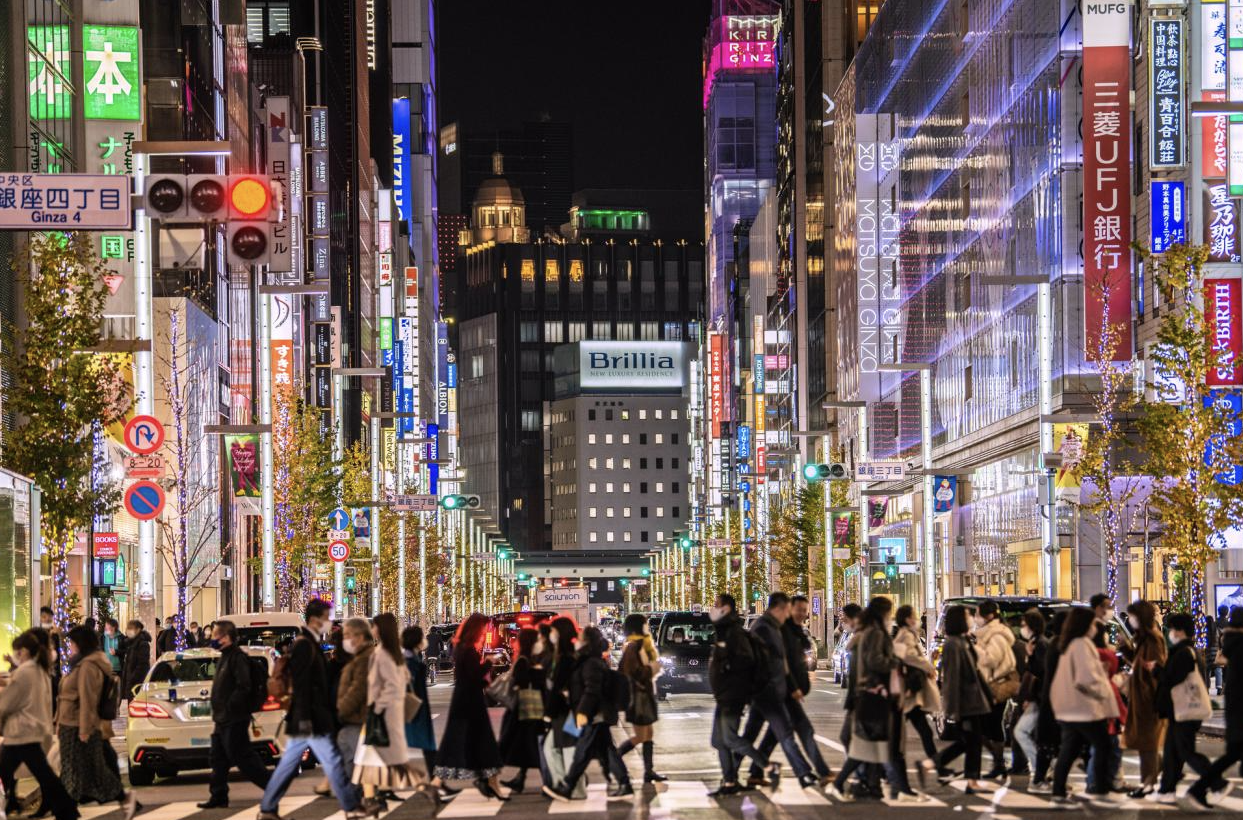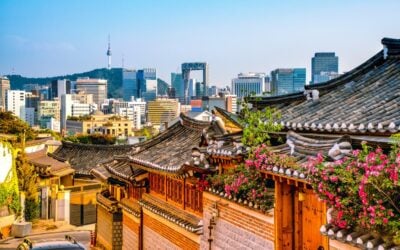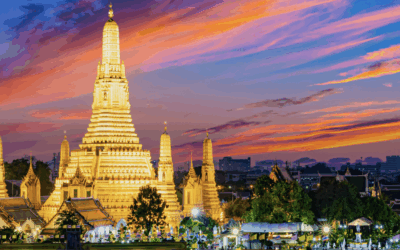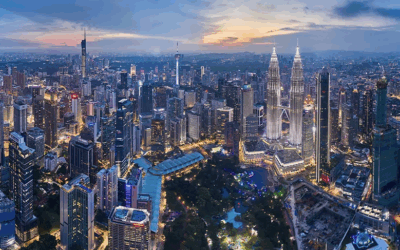Welcome to Tokyo, a city where tradition meets innovation in the most spectacular way.
As Japan’s capital and the beating heart of its economy and culture, Tokyo offers a truly unparalleled experience for expats.
If you’re drawn to its futuristic skyscrapers, ancient temples, or the opportunity to immerse yourself in one of the world’s most unique cultures, Tokyo has something to offer anyone.
Living in Tokyo as an expat is as exhilarating as it is enriching. With over 37 million people in the greater metropolitan area, this vibrant city is a melting pot of diverse lifestyles.
Despite being one of the most populous cities in the world though, Tokyo is remarkably efficient, boasting a world-class public transport system and a level of organization that makes its vast urban sprawl surprisingly manageable.
This guide will provide you with everything you need to know to settle into life in Tokyo, from understanding its neighborhoods to navigating its cost of living and visa options.
Without further ado, let’s dive in and explore what makes Tokyo a top destination for expats.
Best Neighborhoods for Expats
Choosing the right area is one of the most important decisions you’ll make when moving to Tokyo.
Indeed, each area of Tokyo offers something unique, so your choice will depend on your lifestyle, budget, and preferences.
Here’s an expanded look at some of the best neighborhoods in Tokyo to live as a foreign expat:
Shinjuku
Shinjuku is the embodiment of Tokyo’s energy and vibrancy. This bustling district is famous for its neon-lit streets, shopping hubs, and entertainment options.
Kabukicho, the entertainment quarter, is packed with bars, restaurants, and karaoke venues, making it a lively spot for nightlife.
But Shinjuku isn’t just about the buzz – it also offers serene escapes like Shinjuku Gyoen, one of Tokyo’s largest and most beautiful parks.
For expats, Shinjuku’s central location and excellent transportation links make it a convenient place to live. The area is well-connected by the JR Yamanote Line and other train lines, making commuting a breeze.
While housing here can be pricey, it’s possible to find small apartments that fit a wide range of budgets.
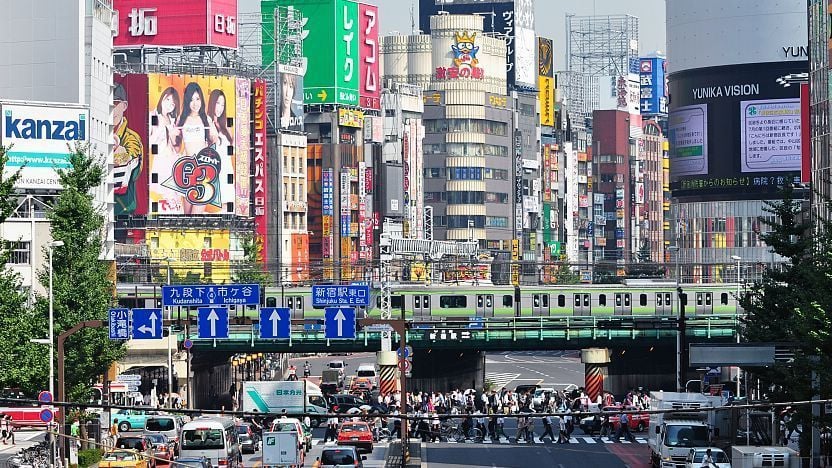
Unlike other large cities in the world, Tokyo doesn’t have any one single center. Instead, several different areas including Shibuya, Shinjuku, and Chiyoda each serve as central hubs in Tokyo.
Shibuya
Shibuya is a youthful and trendy neighborhood that’s synonymous with Tokyo’s modern culture. The famous Shibuya Crossing, often referred to as the busiest pedestrian intersection in the world, is just the tip of the iceberg.
Shibuya is also home to Harajuku, the epicenter of Japanese street fashion, as well as countless shops, cafes, and art galleries.
Indeed, living in Shibuya means immersing yourself in Tokyo’s contemporary lifestyle. The area is particularly popular among young professionals and creatives.
While it offers a vibrant atmosphere, Shibuya also has quieter residential pockets that are perfect for those who want to enjoy the best of both worlds.
The neighborhood’s proximity to major train lines makes it easy to explore other parts of Tokyo, adding to its appeal for expats.
Chiba
Located to the east of Tokyo, Chiba offers a more laid-back lifestyle while still being within commuting distance of the city center. This area is particularly popular with families due to its affordable housing options and family-friendly amenities.
Chiba is home to spacious parks, shopping malls, and even beaches, providing a refreshing contrast to Tokyo’s urban intensity.
Expats living in Chiba often appreciate the slower pace of life and the opportunity to enjoy nature. The area’s proximity to Narita International Airport also makes it a convenient choice for frequent travelers.
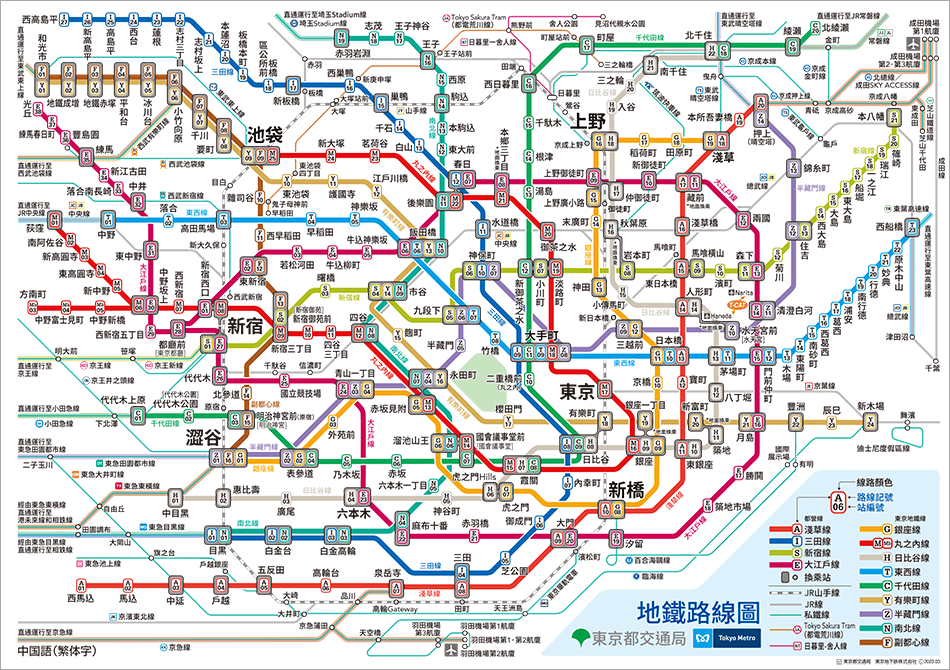
Tokyo has one of the best public transport systems in the world. While this map of Tokyo’s metro stations usually isn’t easy to navigate as a newcomer, the city’s interconnectivity makes the life of expats in Tokyo easier.
Whether you’re looking for a suburban feel or easy access to outdoor activities, Chiba is a great option for expats seeking a balance between city life and tranquility.
Saitama
To the northwest of Tokyo lies Saitama, a prefecture known for its spacious housing and family-friendly environment.
Saitama offers a slower pace of life compared to central Tokyo, making it an attractive option for those who want more space without sacrificing convenience.
The area is rich in cultural and natural attractions, from historic sites to scenic rivers and mountains. Saitama is also well-connected to Tokyo via multiple train lines, ensuring that residents can easily commute to the city for work or leisure.
For expats with families, Saitama offers a rather welcoming and affordable alternative to the hustle and bustle of Tokyo.
Edogawa
Edogawa, located in Tokyo’s eastern wards, is an increasingly popular choice among expats due to its affordability and proximity to the city center.
The neighborhood is known for its family-friendly atmosphere, with plenty of parks, schools, and community facilities.
Edogawa also offers a quieter lifestyle compared to bustling areas like Shinjuku or Shibuya, making it ideal for those who prefer a more relaxed environment.
One of the standout features of Edogawa is its accessibility. The area is well-served by public transport, with direct lines to central Tokyo.
Plus, housing in Edogawa is more spacious and affordable which makes it a solid option for families or expats on a budget.
Nakano
Located near central Tokyo but not precisely in it, Nakano combines charm of a traditional Tokyo neighborhood with modern conveniences.
Known for its vibrant shopping streets and eclectic eateries, Nakano offers a unique blend of old and new. The area is particularly famous for Nakano Broadway, a shopping complex that’s a haven for anime and manga enthusiasts.
For expats, Nakano provides a more local experience while still being close to the city center.
The area’s friendly vibe and relatively affordable housing make it a great choice for those looking to immerse themselves in Japanese culture without breaking the bank.
Yokohama
Although technically a separate city, Yokohama is so close to Tokyo that it’s often considered part of the greater metropolitan area.
As Japan’s second-largest city, Yokohama offers a cosmopolitan lifestyle with a slightly slower pace than Tokyo. The area is known for its beautiful waterfront, international schools, and vibrant expat community.
Living in Yokohama means enjoying the best of both worlds: the energy of a major city and the tranquility of coastal living.
The city is just a short train ride from Tokyo, making it a convenient option for those who work in the capital but prefer a less hectic home environment. Yokohama’s diverse dining scene and cultural attractions add to its appeal for expats.
Japanese Visa Options for Expats
To live and work in Tokyo, you’ll need the appropriate visa. Here are the most common options for expats:
- Work Visa: The majority of expats come to Japan on a work visa, often sponsored by their employer.
- Working Holiday Visa: Available to citizens of select countries, this visa allows young people to live in Japan for up to a year. However, it won’t allow you to work and doesn’t count toward any type of actual residency status.
- Spouse/Dependent Visa: For those married to a Japanese citizen or with a family member living in Japan.
- Student Visa: For international students enrolled in Japanese universities or language schools.
- Business Manager Visa: For those starting a company in Japan, it’s possible to get a business manager visa. The minimum for this visa was recently increased and it now requires putting at least 30 million yen worth of capital into your business.
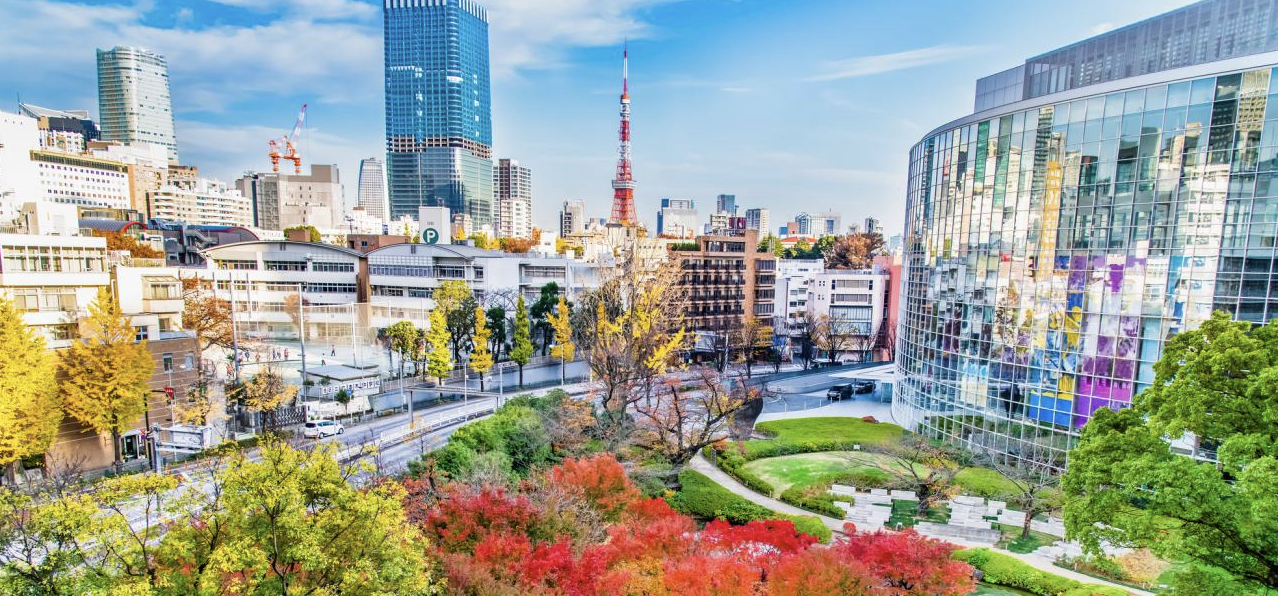
Public parks in Tokyo are easily accessible. Walking and cycling through the neighborhoods are part of the Japanese culture, starting from the moment a toddler goes to kindergarten.
It’s worth noting that Japan also offers visas for specialized fields like research, cultural activities, and skilled labor. Be sure to research which visa best suits your circumstances before making the move.
Getting a Job in Tokyo as a Foreigner
Tokyo is a city of opportunities, bustling with industries that cater to both local and international markets.
For expats, the job market in Tokyo offers a variety of roles, ranging from teaching and tourism to highly specialized professions in engineering and IT.
The majority of expats in Tokyo find work in roles that require English proficiency, particularly in education. English teaching remains one of the most popular options, with positions available at language schools, international schools, and even universities.
Many expats start their journey in Tokyo as English teachers, often on a work visa sponsored by their employer. These roles are ideal for newcomers to Japan who may not yet have strong Japanese language skills.
For those with qualifications, Tokyo’s schools and universities offer jobs for professors and subject-specific teachers. These roles require higher credentials but often come with better salaries and benefits.
If you have technical expertise or an advanced degrees, it’s possible to explore a wide range of specialized roles. Tokyo’s place as a global hub makes it a hotspot for industries like IT and finance.
Companies in these fields generally seek bilingual professionals who speak Japanese, but there are also opportunities for English-only speakers in multinational corporations.
Should You Move to Tokyo?
Living in Tokyo comes with countless perks that make it one of the best cities in the world for expats.
For starters, the city’s public transportation system is one of the most efficient and extensive in the world. With its network of trains, subways, and buses, you can easily navigate the city and even venture into the countryside without the need for a car.
Meanwhile, Tokyo is a paradise for food lovers. You can enjoy authentic Japanese dishes like sushi, ramen, and shabu-shabu, or explore international cuisines from around the world.
Tokyo has everything from cozy izakayas to Michelin-starred restaurants. To underscore the latter, the city boasts a greater number of Michelin stars than anywhere else in the world.
Living here as a foreigner certainly isn’t without its challenges though. The language barrier can be a significant hurdle for those who don’t speak Japanese, although many signs and menus in Tokyo are in English.
Learning basic Japanese before moving will certainly make a huge difference in your daily life.
Yet another major challenge of living in Tokyo is the crowded rush-hour trains, which can be rather overwhelming. Picking a home near your workplace or along a less-congested train line can help solve this issue.
With all that said, Tokyo isn’t just a city – it’s an experience, and for many, a dream come true.
FAQs: Expat Living in Tokyo, Japan
How is the Public Transport System in Tokyo for Expats?
Tokyo boasts one of the most efficient and extensive public transport systems in the world. With its interconnected network of trains, subways, and buses, navigating the city is straightforward.
The JR Yamanote Line and other major train lines make commuting a breeze - once you learn how to navigate Tokyo's rather extensive system that is!
What Are the Best Neighborhoods in Tokyo for Expats?
- Shinjuku: Known for its vibrant nightlife, shopping hubs, and excellent transport links, Shinjuku is perfect for those who thrive in the city’s energetic atmosphere.
- Shibuya: Famous for its youthful vibe, Harajuku fashion scene, and trendy cafes, Shibuya is ideal for young professionals and creatives.
- Edogawa: Affordable and family-oriented, this area offers parks, schools, and a relaxed lifestyle.
What Job For Expats in Tokyo Are Available?
Tokyo offers a wide range of job opportunities for expats, especially in industries like education, IT, engineering, and finance.
English teaching is one of the most popular roles for newcomers, with positions available at language schools, international schools, and universities. Those with technical expertise or advanced degrees can explore specialized roles, particularly in multinational companies that may not require Japanese language proficiency.
Is Tokyo a Good City for Expat Families?
Yes, Tokyo is an excellent city for families, offering family-friendly neighborhoods like Chiba, Saitama, and Edogawa. These areas provide affordable housing, parks, schools, and a slower pace of life compared to central Tokyo.
On top of that, Tokyo’s efficient public transport system and high safety standards make it a great place to raise children.

